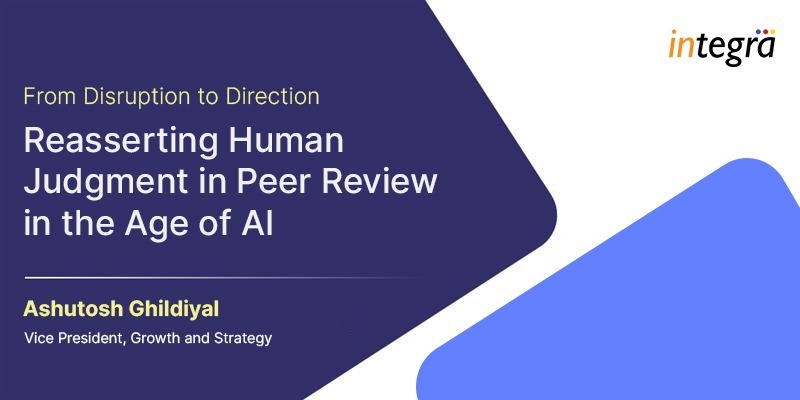
Research integrity refers to adopting the best research practices that give people confidence and trust in the findings of the research outcomes. Integrity in research is generally achieved by strict adherence to the set of ethical principles set by the research community, at large, without any deviation from its core standards. Research findings are crucial to filling the knowledge gaps, discovering new treatments, gathering insights and evidence for governance structures and making important national and global decisions. So, upholding high research standards and ensuring a robust, transparent, and fair process is essential to promote integrity in research practices.
Key elements of research integrity
Integrity in research forms the basis of society’s trust in research results and expertise. Research ethics and integrity must be considered at all stages of research to avoid questionable findings and research misconduct. Key principles include:
- Honesty and responsibility
- Rigor and accountability
- Transparency and fairness
- Care and respect for all subjects and research participants
- Professional courtesy and good stewardship
Violations of research integrity
Integrity in the research process and reporting findings is often compromised due to several reasons. Extreme stress and pressure on the researchers and authors to publish their study for graduation or funding purposes, strict deadlines they must adhere to for career advancements and oversight of institutions can cause serious violations. Some such violations that can abandon the basic research principles of transparency and openness are:
- Falsified and fabricated data that contaminate the research findings and wastes funding resources
- Plagiarism that leads to copyright infringement
- Conflicts of interest that negatively impacts the research credibility
- Undue influence of researchers’ personal values that leads to biased and illogical studies outside the realm of science
The gateway to safeguard integrity of research
Peer review is a primary form of research evaluation that helps assess the report or manuscript quality before publication. It ensures credibility and trustworthiness of the research and its findings. The role of peer review in supporting integrity and trust in research publications is crucial as it tackles unconscious bias and enhances data transparency. This process prevents unethical practices like plagiarism and ensures high standards of the scientific process for the research results. The reviewers must follow certain peer review guidelines considering the potential for bias and abuse of the process, such as:
- The reviewer must possess subject expertise to review the manuscripts
- The reviewer must make an effort to complete the review within the requested time
- The reviewer’s review must be based on facts and figures and not on the personal or professional bias
- The reviewer must maintain the confidentiality of the manuscript
- The reviewer must not use any information obtained during the peer review process for personal benefit
- The reviewer must be objective and constructive in reviews
We can establish a culture of integrity leveraging the policies and best practices mentioned by the Committee on Publication Ethics (COPE) and maintain the highest standards in publication ethics. There are also multiple reporting checklists and guidelines that authors must follow. Technological advancements like plagiarism detection software and image checking tools flag redundant information and spot errors. Amidst all such developments, peer review remains the most crucial step in ensuring integrity of research findings before a study is published. The editorial office plays a significant role in supporting peer review management and support. They are rightly placed to identify and communicate any such deviations promptly to the authorities concerned for further investigation. Integra offers smart, end-to-end peer review services catering to different working models. We are experienced in peer review database clean-up that checks for duplicate accounts and flags suspicious user accounts within a short span. The subject matter experts evaluate manuscripts in a timely manner and offer valuable feedback. Our team also looks for solicitation emails offering bribes for publication or proposing to collaborate with the journal to publish multiple manuscripts in return for quick acceptance. Upholding integrity of research is not just an individual’s responsibility, but an obligation shouldered by all the stakeholders, involving authors, institutions, ethical committees, peer reviewers and publishers.
Further Reading:
https://www.imperial.ac.uk/research-and-innovation/research-office/research-governance-and-integrity/research-integrity/what-is-research integrity/ https://ori.hhs.gov/education/products/ucla/chapter1/page02.htmhttps://www.ed.ac.uk/research-office/research-integrity/what-is-research-integrity https://research.unimelb.edu.au/work-with-us/ethics-and-integrity/research-integrity-principles https://www.coursera.org/lecture/quantitative-methods/6-05-research-integrity-Rkpli https://uaf.edu/ori/responsible-conduct/peer-review/index.php https://researchintegrity.asu.edu/responsible-conduct/responsible-conduct-research-program/peer-review https://ukrio.org/publications/code-of-practice-for-research/3-0-standards-for-organisations-and-researchers/3-14-peer-review/ https://researchintegrityjournal.biomedcentral.com/about#:~:text=Peer%2Dreview%20is%20the%20system,be%20published%20in%20their%20journal.
Recent Blogs

Print, Pedagogy, and AI: The New Architecture of Educational Publishing

From Disruption to Direction: Reasserting Human Judgment in Peer Review in the Age of AI


